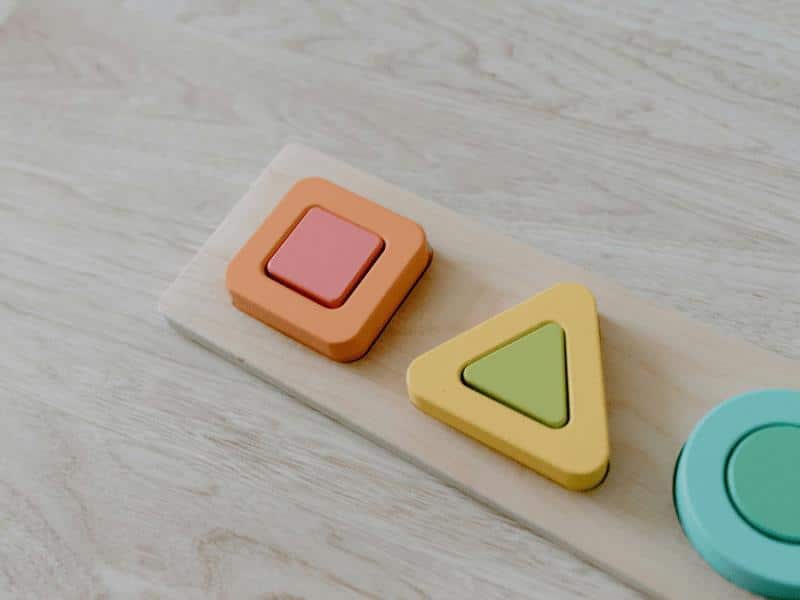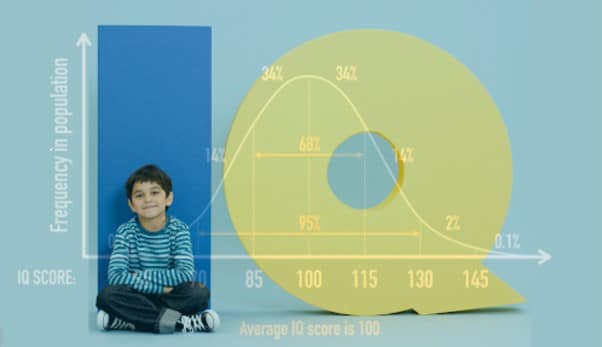
IQ Test for Kids: A Comprehensive Guide
An IQ test for kids can give you a better understanding of your child’s intellectual abilities, but how accurate are these assessments in reflecting your child’s full potential? We review the pros and cons of the most popular IQ tests for kids.
What is an Intelligence Quotient (IQ) Test? IQ tests for kids provide insight into a child’s intellectual capabilities, offering parents a clearer picture of their strengths and areas for support. But how reliable and comprehensive are these tests, and how can they truly reflect your child’s potential?
In this article, we’ll explore children’s IQ tests, cognitive assessments for children, and the pros and cons of testing, as well as offer practical advice for nurturing cognitive growth at home. Whether you’re exploring options like a free children’s IQ test or considering professional testing, this guide will help you make an informed decision.
What is IQ Testing?
IQ testing for kids is a type of cognitive assessment for children that measures intellectual functions, such as reasoning, problem-solving, memory, and comprehension. These IQ tests for kids are often designed to estimate future academic success, identify strengths, or diagnose learning difficulties.
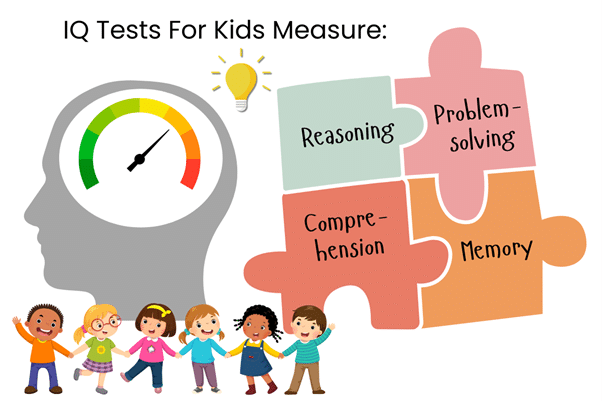
Stages of Cognitive Development for Kids
Before deciding to have your child tested, it can be helpful to understand the various stages of cognitive development of children.
While young learners develop at different rates and in different ways, there are some general milestones to keep in mind:
Birth to 2 years old: Children understand the world through senses and actions, learning through trial and error.
Ages 2-7 years old: Children can think symbolically but still rely on intuition and require adult guidance to understand more complex concepts.
Ages 7-12 years old: Children can demonstrate independent logical reasoning, understanding the world through categories and logical thinking.
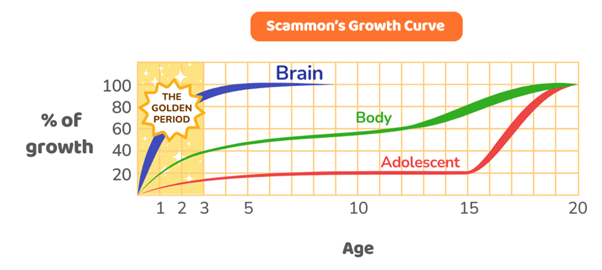
The first three years of life are when your child’s brain is at its most powerful, absorbing information faster than at any other time. This is known as the Golden Period – a critical window of extraordinary development and learning potential.
Age-appropriate IQ tests for kids
Common tests include the Wechsler Intelligence Scale for Children (WISC), Stanford-Binet Intelligence Scales, and others suited to specific age groups and cognitive abilities.
However, IQ tests provide only a partial view of a child’s potential. While they can identify certain cognitive skills, holistic development programs like Shichida can complement IQ testing by nurturing both cognitive and emotional intelligence.
Why Consider an IQ Test for Kids?
What are the benefits of early IQ testing for children? One of the key IQ test benefits is providing insights into a child’s cognitive strengths and areas where they may need additional support.
It is for this reason that parents often seek IQ testing for kids, as the results could assist in understanding a child’s learning style, identifying giftedness, or assessing developmental progress.
Child intelligence tests can be valuable in these scenarios, but it’s essential to understand their limitations. While IQ test types for children focus on specific skills, well-rounded development programs can provide a more comprehensive foundation by including emotional and social skills, critical thinking, and memory.

Examples of pattern recognition IQ test questions: Pattern recognition challenges like these assess fluid intelligence, focusing on reasoning and problem-solving.
Popular IQ Tests for Children
Let’s take a closer look at some standardised IQ assessments available for kids.
1. Wechsler Intelligence Scale for Children (WISC)
- Age Range: 6–16 years
- Focus: Verbal comprehension, perceptual reasoning, working memory, and processing speed.
- The original WISC assessment was developed by Dr. David Wechsler in 1949 and has since been updated several times.
- The WISC is one of the most widely used IQ tests for kids and helps provide a comprehensive understanding of a child’s cognitive strengths.
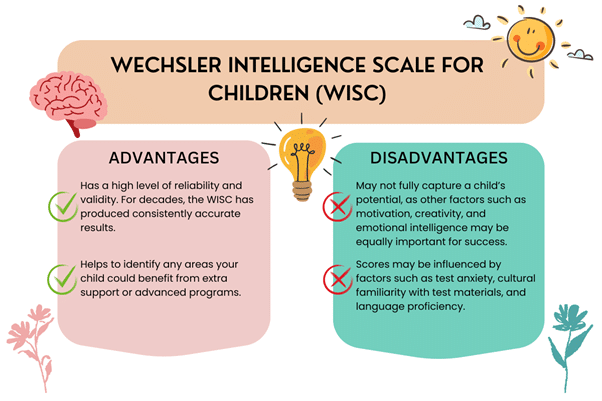
2. Naglieri Nonverbal Ability Test (NNAT)
- Age Range: K–12
- Focus: Problem-solving and reasoning, without reliance on language skills.
- The NNAT is suitable for children with language delays or ESL (English as a Second Language) backgrounds, focusing on nonverbal reasoning.
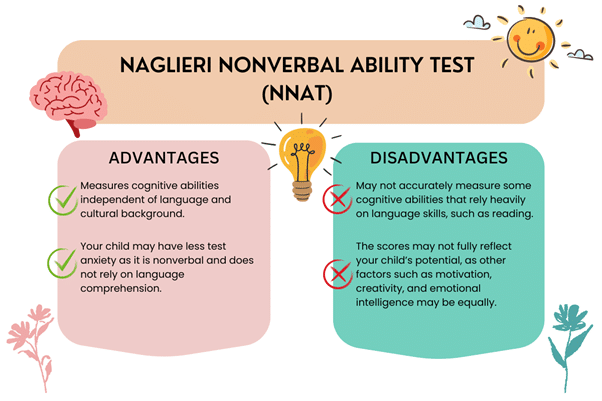
3. Cognitive Abilities Test (CogAT)
- Age Range: K–12
- Focus: Verbal, quantitative, and nonverbal reasoning skills.
- The CogAT evaluates a child’s academic abilities and is often used in gifted program placements.
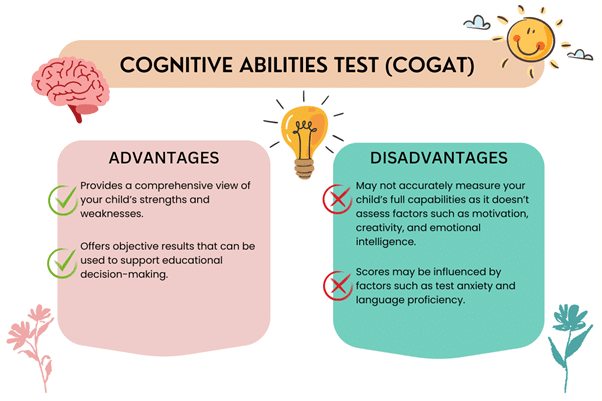
An IQ test kids can take at an early age, may reveal valuable insights into their cognitive development and help guide their learning journey.
While these tests measure specific skills, programs focused on holistic child development nurture both cognitive and emotional skills through activities that develop memory, problem-solving, and empathy, complementing what IQ testing can assess.
When Should Kids Take an IQ Test?
What are the age ranges for child IQ testing? Children aged 3 years through to 16 years 11 months are appropriate for IQ testing. Experts generally recommend conducting IQ tests for kids at age 6 or older when cognitive functions are more developed. Before age 6, children undergo rapid cognitive changes, and childhood IQ test results may fluctuate.
Signs of Giftedness to Consider Testing
- Exceptional memory and curiosity.
- Advanced problem-solving skills.
- Early interest in learning new things.
Programs that begin early, using age-appropriate activities, can help children build cognitive skills and emotional intelligence gradually, preparing them for both academics and life.
Understanding my child’s IQ score: Interpreting children’s IQ test results
What Is the Average IQ Score? Understanding IQ test scores can be confusing. Here’s a general interpretation:
Wechsler Intelligence Scale for Children–Fifth Edition (WISC-V) IQ classification
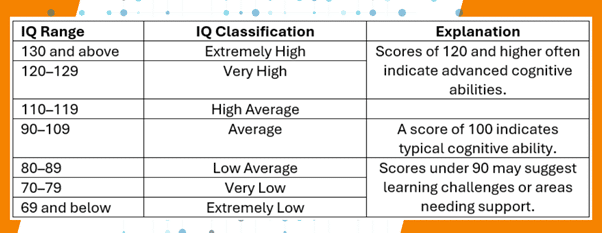
Kaufman, Alan S.; Engi Raiford, Susan; Coalson, Diane L. (2016). Intelligent Testing With the WISC-V. Hoboken, New Jersey: John Wiley & Sons. p. 237. ISBN 978-1-118-58923-6.
However, an IQ test for kids’ results, is only one piece of a child’s profile, and it’s essential to focus on consistent improvement, regardless of starting point, by supporting children in building confidence, critical thinking, and resilience.
Pros and Cons of IQ Testing For Kids
A kids IQ test can be a helpful tool for understanding a child’s unique learning style and cognitive abilities early on. However, there are some drawbacks to consider.
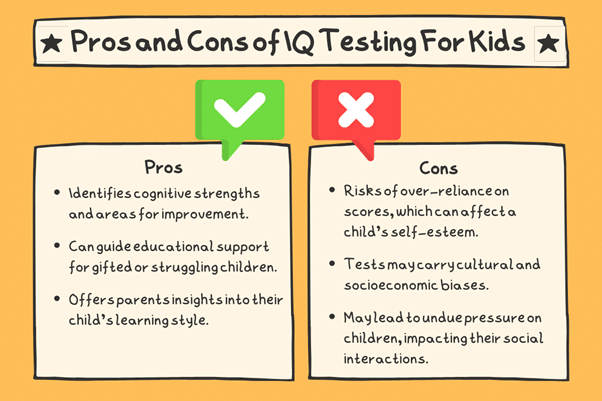
While an IQ test for kids can be insightful, it’s essential to remember that IQ is only one part of a child’s potential. Programs that integrate both IQ and EQ development provide a balanced approach, supporting emotional and social skills alongside cognitive growth.
Free vs. Professional IQ Tests: Which Should You Choose?
There are many free IQ tests for kids online, but these generally lack the depth and reliability of professionally administered tests. Free tests might give a general idea, but they’re not a substitute for formal assessments.
- Free IQ Test for Kids: Quick, accessible, but limited in scope and accuracy.
- Professional IQ Testing: In-depth, validated by psychologists, and provides a fuller understanding of a child’s abilities.
While a childhood IQ test may provide a snapshot, structured early learning enrichment programs and activities offer a more sustained approach to developing intelligence, addressing both cognitive and emotional aspects.
Many online discussion boards feature debates among parents and educators about the benefits of testing children’s IQs. Ultimately, the decision depends on your parenting philosophy and personal approach to your child’s growth and development.
What Is IQ vs EQ? Emotional Intelligence vs. IQ in Kids
IQ measures cognitive abilities like reasoning, problem-solving, and memory, while EQ (emotional intelligence) focuses on understanding and managing emotions, empathy, and social skills. In kids, both are crucial for success – IQ supports academic learning, while EQ helps with communication, resilience, and forming relationships. At Shichida, we nurture both for balanced development during the early years.
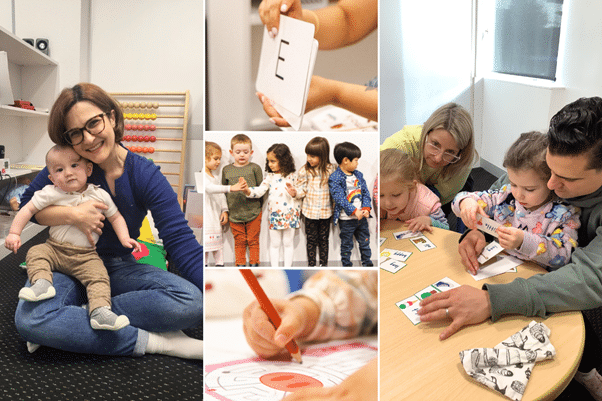
Shichida Australia is a leading cognitive enrichment program, helping children develop both IQ and EQ during the critical early years of growth.
Practical Advice for Parents: Supporting Cognitive Development at Home
Supporting your child’s cognitive growth doesn’t require formal testing alone. Everyday activities, structured play, and engaging educational games can all contribute to cognitive and emotional development. Here are some effective ways parents can support their child’s learning at home:
1. Memory Games for Babies
For younger children aged 6–12 months, memory development can start with simple games like peek-a-boo, which helps babies understand object permanence and strengthens their recall abilities.
2. Memory Games for Toddlers
Simple memory games like matching pairs or “Simon Says” can enhance your toddler’s working memory and attention span.
3. Create a Reading Routine
Reading together not only builds literacy skills but also stimulates imagination and critical thinking.
4. Explore Puzzle and Logic Games
Games like jigsaw puzzles, building blocks, and age-appropriate brain teasers promote problem-solving and spatial reasoning.
5. Encourage a Supportive Learning Environment
Set up a quiet, organised space for learning and playing. Providing a specific area for educational games, art, and reading helps create structure.
6. Promote Curiosity Through Nature and Discovery
Spending time outdoors, observing plants, animals, or even the weather can spark curiosity and observational skills. Encourage your child to ask questions and explore.
7. Engage in Creative Play and Role-Playing
Encourage imaginative play and role-playing, like pretending to be a teacher, a doctor, or an explorer. This form of play supports cognitive flexibility, empathy, and communication skills.
8. Participate in Structured Learning Programs
For a balanced approach to developing both IQ and EQ, early learning enrichment programs like The Shichida Method offer structured support in cognitive and emotional growth. Shichida classes provide parents with the knowledge to extend learning at home, reinforcing lessons from class through fun, hands-on activities.

Shichida flash cards are more than just fun! They enhance cognitive development by boosting vocabulary, memory, pattern recognition, focus, and critical thinking in kids.
Emotional and Social Considerations in IQ Testing
An IQ test for kids result may impact a child’s self-esteem and social life, especially if labelled as “gifted” or “below average.” Recognising the emotional impact of scores is crucial, as it can shape a child’s self-perception and interactions with peers.
Programs that build emotional intelligence alongside cognitive abilities develop resilience, empathy, and self-awareness, all of which support a balanced sense of self-worth, regardless of IQ.
Ethical and Privacy Concerns
Parents should consider the privacy and ethical implications of IQ tests for children. Results are often sensitive, and parents need to ensure that they’re kept confidential and used constructively to support a child’s growth.
The Role of Environment and Early Learning in Cognitive Development
Early childhood experiences, family environment, and educational exposure significantly impact a child’s cognitive development. A supportive environment encourages curiosity, problem-solving, and adaptability. Parents can promote cognitive growth by:
- Providing Enriching Experiences: Engage in activities like reading, exploring nature, and creative play to stimulate different areas of the brain. Parents should consider enrolling for early learning enrichment classes.
- Creating a Stable Routine: Regular routines help children feel secure and focus on learning.
- Modelling Positive Learning Attitudes: Children learn by example, so showing enthusiasm for learning helps instil a love for it in them as well.
By nurturing a child’s learning environment from an early age, parents can help shape their cognitive and emotional growth, preparing them for both academic and social success.
Long-Term Implications of High or Low IQ Scores
While high IQ scores might open doors for advanced learning opportunities, low scores should not be seen as limitations. IQ tests for kids can guide educational support, but a balanced approach to learning is essential for long-term success.
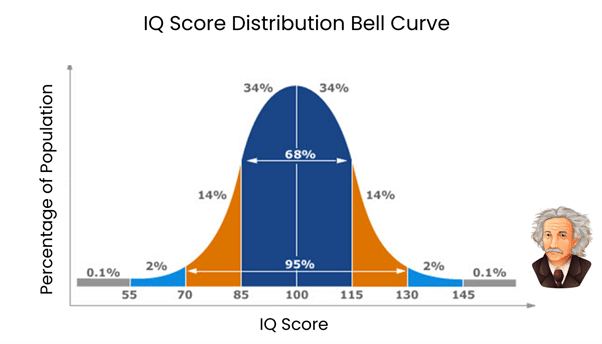
The IQ Score Distribution Bell Curve illustrates the distribution of IQ scores across the population, with 68% of scores falling within the average range (85-115) and a smaller percentage in the higher and lower ranges.
Common Myths About IQ Testing
- Myth 1: IQ is fixed and unchangeable.
Fact: Cognitive skills can develop with the right support and environment. - Myth 2: High IQ equals success.
Fact: Success is a combination of IQ, EQ, perseverance, and opportunity.
This reinforces the idea that a child’s potential isn’t limited by scores alone. Holistic development approaches recognise and nurture potential across multiple dimensions.
How long does it take to do an IQ test for kids?
The duration of testing typically ranges from 60 to 90 minutes, depending on the child’s age and abilities.
Preparing your child for an IQ test: List of Tips for Kid’s IQ Testing
Preparing a child for an IQ test can make the experience smoother and help them perform at their best. Here are some practical tips for parents:
- Set a Positive Tone
Encourage your child by framing the test as a fun activity. - Explain What to Expect
Give your child a basic idea of what the test will involve. - Encourage a Good Night’s Sleep
Ensure your child is well-rested before the testing day. - Provide a Nutritious Breakfast
A healthy breakfast with balanced nutrients can help your child maintain energy and concentration levels. - Practice Relaxation Techniques
Teach your child simple relaxation techniques, like deep breathing. - Encourage a Growth Mindset
Remind your child that everyone has different strengths and that the purpose of the assessment is to help them grow and learn. - Arrive Early to the Test Location
Arriving a little early allows your child to adjust to the new environment.
These tips can help your child approach the IQ test with a positive mindset, ensuring they feel comfortable and supported throughout the experience.
Conclusion: Choosing the Right Approach for Your Child
IQ testing offers insights, but a child’s true potential is shaped by more than just scores.
While IQ tests are an optional tool for understanding your child’s cognitive strengths, engaging in enrichment activities like Shichida can support their development in a more comprehensive way. These programs nurture both intellectual and emotional skills, helping children thrive academically, socially, and emotionally, regardless of their test results.
For parents interested in nurturing their child’s IQ and EQ, the Shichida Method offers a comprehensive approach that supports both intellectual and emotional growth. Whether your child scores high, average, or low on an IQ test, they’ll find the support they need at Shichida to reach their full potential.
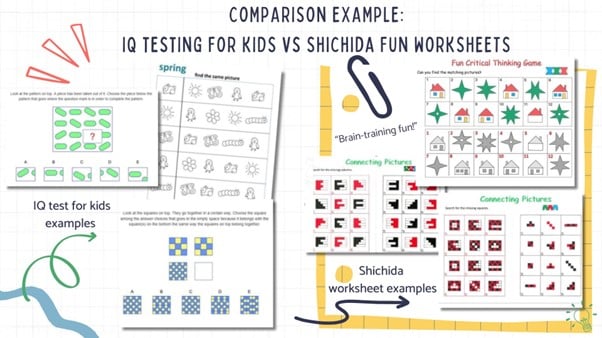
At Shichida Australia, every activity is designed with a purpose: we focus on activities to boost children’s intelligence and make learning enjoyable.
Developing IQ and EQ with the Shichida Method
As one of our underlying philosophies at Shichida Australia is to engage the heart of a child to engage their mind.
The Shichida Method nurtures children’s intellectual and emotional growth with engaging intelligence games designed to stimulate whole-brain development. These carefully crafted activities help children build essential cognitive and life skills in a fun, interactive way. Examples include:
- Focus and Attention Games: Activities like pattern recognition and task sequencing to strengthen concentration and focus.
- Memory-Boosting Games: Exercises that train the brain for photographic memory and enhance recall.
- Creative Thinking Activities: Visual exercises such as image association and imagination-building tasks to spark creativity.
- Language and Verbal Intelligence Games: Early phonics, storytelling, and vocabulary exercises to improve comprehension and communication.
- Mathematical-Logical Challenges: Fun problem-solving games and number-based activities to develop reasoning skills.
- And Much More! A variety of activities are tailored to encourage curiosity, adaptability, and emotional resilience.
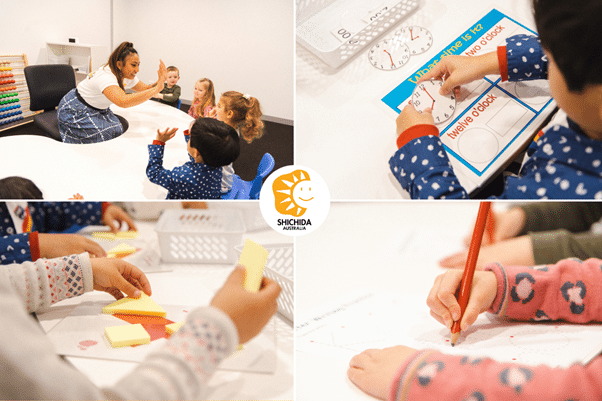
Want to sharpen your child’s mind and support their intelligence and full potential? Try Shichida Australia today! Book a trial class – perfect for kids aged 6 months to 4.5 years old.
Frequently Asked Questions (FAQs): Child IQ and IQ test for kids
How do I know if my child has a high IQ? Early signs of cognitive strengths can appear even in babies and toddlers. Look for things like curiosity, problem-solving during play, the ability to focus on simple activities, early use of language, and memory during games like peek-a-boo. These are all indicators of early cognitive potential, and observing them can help you better understand your child’s unique strengths.
Not at all! The first few years are critical for brain development. Engaging in simple activities like singing songs with actions, reading together, and playing memory games can help lay the foundation for important skills. Structured programs, like the Shichida Method, are designed to support young children’s cognitive and emotional growth gently, without the pressure of testing.
Early learning programs help children build foundational skills, such as attention, memory, problem-solving, and resilience. These early years are a crucial time for developing both cognitive and emotional skills, which later support school readiness and social adaptability. Programs like Shichida focus on these areas to nurture whole-child development from a young age.
Parents can encourage growth through everyday activities. Try playing memory games, engaging in puzzle or logic games, creating a regular reading routine, or exploring nature together. Setting up a calm, organised space for learning or play can also make a big difference. For a structured approach, programs like the Shichida Method offer resources that extend into the home, making it easier for parents to support development in fun, hands-on ways.
Not at all! Quality early learning programs emphasise enjoyment and exploration rather than performance. For example, Shichida’ s approach incorporates fun, interactive activities that nurture both IQ and EQ. These programs focus on building confidence, curiosity, and adaptability, creating a positive learning environment that supports healthy growth.
A nurturing home environment plays a huge role in early childhood development. Regular routines, a positive attitude towards learning, and opportunities for exploration help children feel secure and engaged. Parents can promote growth by providing enriching experiences, modelling curiosity, and offering consistent encouragement. However, parents do not have to go it alone! Programs that encourage a good attitude to learning and life is quite valuable as part of the parenting toolkit.
Cultural background, access to resources, and quality of education all impact a child’s learning experience. When interpreting IQ tests for kids’ scores, it’s essential to consider these external factors, as they can influence testing outcomes. Programs like Shichida value a balanced view of cognitive and emotional development, helping children from all backgrounds grow their potential without relying on scores.
Some early learning programs often go beyond cognitive skills to build social and emotional intelligence. Children learn resilience, empathy, and confidence through activities that encourage sharing, communication, and problem-solving with others. These skills are essential for school readiness and social adaptability, helping children thrive in various settings. However, take note that not all early programs cover both IQ and EQ development.
Improving your child’s IQ involves activities that stimulate cognitive growth and develop critical skills. At Shichida, we focus on developing memory through visual recall and sequential exercises, pattern recognition with matching games and puzzles, and problem-solving skills through logic challenges and creative thinking tasks. These activities not only support intellectual development but also encourage curiosity and a love for learning, essential for building a strong cognitive foundation.
IQ testing for kids can give you an idea if your child is gifted or not, but it’s important to consider other characteristics of gifted children as well. These may include:
- Advanced vocabulary
- An ability to express thoughts easily
- Quick learning and grasping of new concepts
- Exceptional memory for details
These traits, alongside a high IQ, can indicate giftedness. However, Observing your child’s abilities in day-to-day activities can also provide valuable insights.

